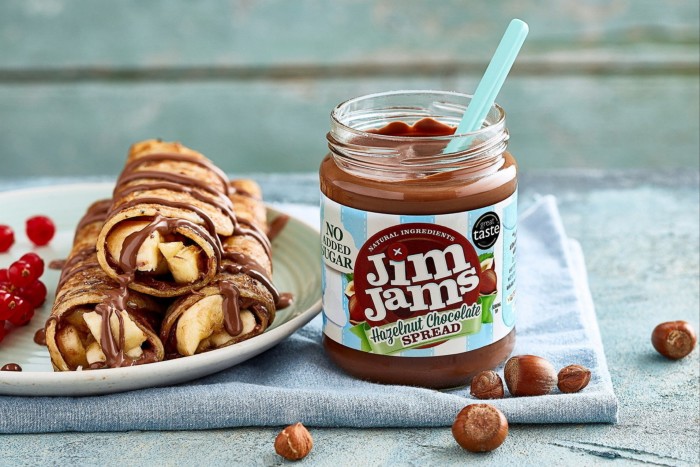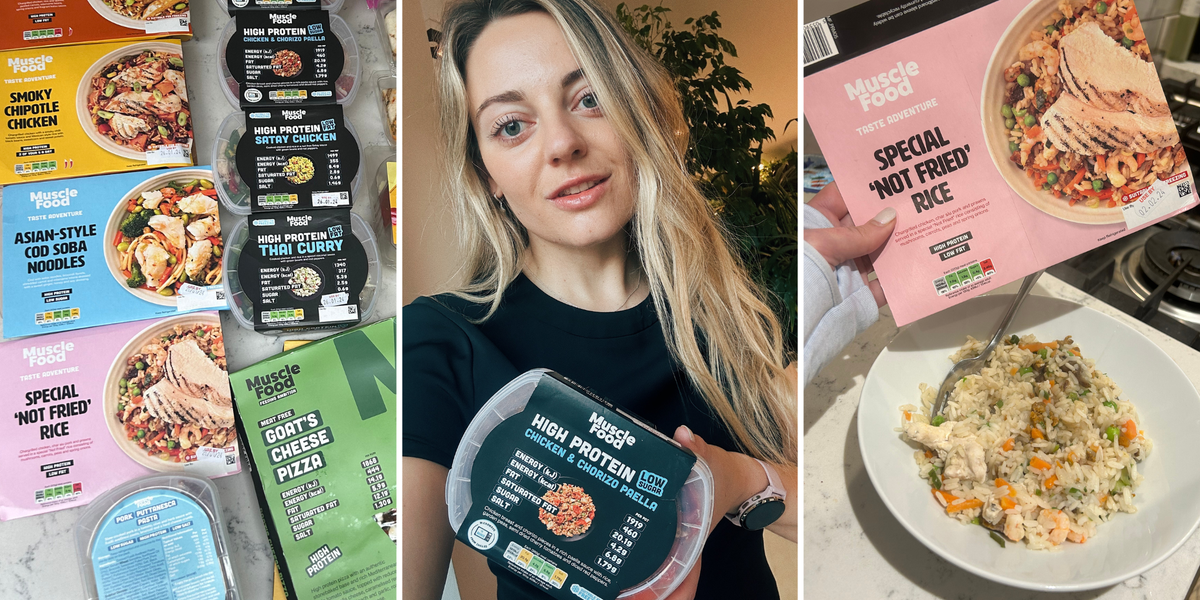
Anthony Fletcher, the former chief of snacks brand Graze and Innocent smoothies, was in search of a new healthy eating project when he landed on an unlikely category: doughnuts.
His fledgling brand Urban Legend, launched a year ago, is going head to head with Krispy Kreme in UK supermarkets as it seeks to persuade hungry consumers to switch to a lower-sugar, lower-calorie alternative.
His banoffee pie, strawberry cupcake and “Choc Party” confections, made using a patented process that “sets” the dough using steam instead of deep-fat frying, place him among a crop of start-ups seeking to displace household-name food brands with healthier options.
These start-ups are also set to benefit from new anti-obesity regulations in the UK, which limit where supermarkets can place foods that are high in fat, sugar and salt (HFSS) — but not versions with significantly healthier ingredients.
“The idea for Urban Legend is not to ask the consumer to change . . . it’s taking the junk out of the junk food rather than making something that appears different to the consumer,” Fletcher said.
“Krispy Kreme is a deeply indulgent product that is high in all sorts of things. We wanted to recreate that taste experience without the higher levels of sugar, fat and calories — that was our outrageous vision.”
The UK’s obesity problem, one of the worst in Europe, has put packaged food companies in the spotlight. Unilever, under pressure from investors, last month published a nutrition assessment of its portfolio that found only 35 per cent fell outside the HFSS category.
Companies such as Unilever, which makes Magnum and Ben & Jerry’s ice creams and Hellmann’s mayonnaise, are conscious of changing consumer habits and regulatory pressures to provide a healthier offering. Unilever set out new nutrition targets this year. It bought Graze, which makes healthy snacks such as roasted nuts and seeds, in 2019.
Yet entrepreneurs such as Fletcher believe something further is needed. His latest venture was inspired by a conversation with a senior public health official, who told him overall UK diets continued to deteriorate annually despite voluntary sugar reduction targets for the industry — and despite the growth of companies like Graze, which reported annual revenues of £38mn in 2020, the first year after it was bought.
The rise of the healthy snack brand “had barely moved the needle”, he said. “I didn’t want to do another premium, wholesome product.”
Instead, he turned to doughnuts as part of an attempt to make healthier food accessible and affordable to those most vulnerable to obesity.
Public health groups such as Impact on Urban Health, part of the non-profit Guy’s & St Thomas’ Foundation, argue that low-income households are more likely to have poor diets because of the high prices of healthy products, a proliferation of unhealthy foods in deprived areas, and a lack of “money and headspace” to prepare wholesome meals.

“[For companies] unhealthy food is cheaper to produce, is tasty and sells,” said Louis Bedwell, managing director at venture capital firm Mission Ventures.
While the UK’s new rules have prompted some change, “there are healthier snack options popping up but they are in a small set of categories, stocked in certain stores and are often more expensive”, said Bedwell.
Multinationals are often reluctant to take risks on new brands or healthier versions of existing ones, especially after a series of failures in areas such as low-sugar chocolate.
Meanwhile, about £42mn of venture capital investment into “healthy” food categories between 2018 and 2022 was dwarfed by, for example, the £296mn plunged into alcoholic drinks brands, according to corporate finance group Oghma Partners.
To try to fill the gap, Mission Ventures and Impact on Urban Health have set up the Good Food Programme, which provides funding and advice to “healthy challenger brands”, including Urban Legend, that make affordable products in categories with few reasonably priced and nutritious options. They want these brands not only to succeed but to influence global foodmakers.
Another brand supported by the scheme is seven-year-old Jim Jams chocolate spread, which is mounting a direct challenge to Nutella. Others include Naturelly jelly, made with fruit juice and added fibre, and Rootles chocolate biscuits made with 40 per cent root vegetables.
Such products are not without their own issues. Many low-sugar brands rely on sweeteners called polyols, which can have laxative effects when consumed in large quantities or by people with digestive problems.
The products will need to show that they can tempt consumers to try a new brand, taste good enough to draw repeat custom, and that buyers will not eat large quantities emboldened by lower calorie counts.
Bakery products such as doughnuts are seen as one of the most difficult categories to recreate in healthier versions, said Fletcher, with chocolate the most technically challenging. But new technologies for recreating texture and flavour are enabling more convincing alternatives, he added.

However, Ferrero, the multinational that makes Nutella, said that “reformulation is not a straightforward option. We have not yet found alternative recipes that our consumers prefer.”
It added: “The fundamental issue in food intake is calories, not sugar, so changes that reduce sugar but increase calories could be counter-productive.”
Ferrero said Nutella’s focus in health terms was portion control, with its marketing materials encouraging consumers to eat a single 15g serving. Krispy Kreme did not respond to a request for comment. It also offers smaller “bites” servings.
Experts agree that far wider change is needed to tackle obesity, including a shift towards eating more fruit and vegetables.
Katharine Jenner, director at Obesity Health Alliance, said: “We would like to see much more of a level playing field when it comes to what’s on our shelves — if it is possible to make doughnuts and chocolate spreads with less sugar, then all doughnuts and chocolate spreads could have less sugar.

“Food businesses need to be adequately incentivised, and for that we need political will from the highest levels of government.”
For the first cohort of brands taking part in the Good Food Programme, the test is popularity. Jim Jams is available in all UK supermarkets and the Good Food Programme said there had been “significant switching” to the product among low-income families. The company became profitable this year.
Urban Legend doughnuts are available in London branches of Tesco and in Selfridges, with a trial under way in J Sainsbury. Fletcher acknowledged it was early days, but said he wanted to convert a significant number of buyers of Krispy Kreme, which brought in $1.4bn of net revenues last year.
Doughnuts are “a product that makes people feel good and impacts their health — that’s why I picked it”, he said. “A healthier brioche wasn’t going to change the world.”


:max_bytes(150000):strip_icc()/6183602-b3e4206d75dd4925954984e0745bac58.jpg)